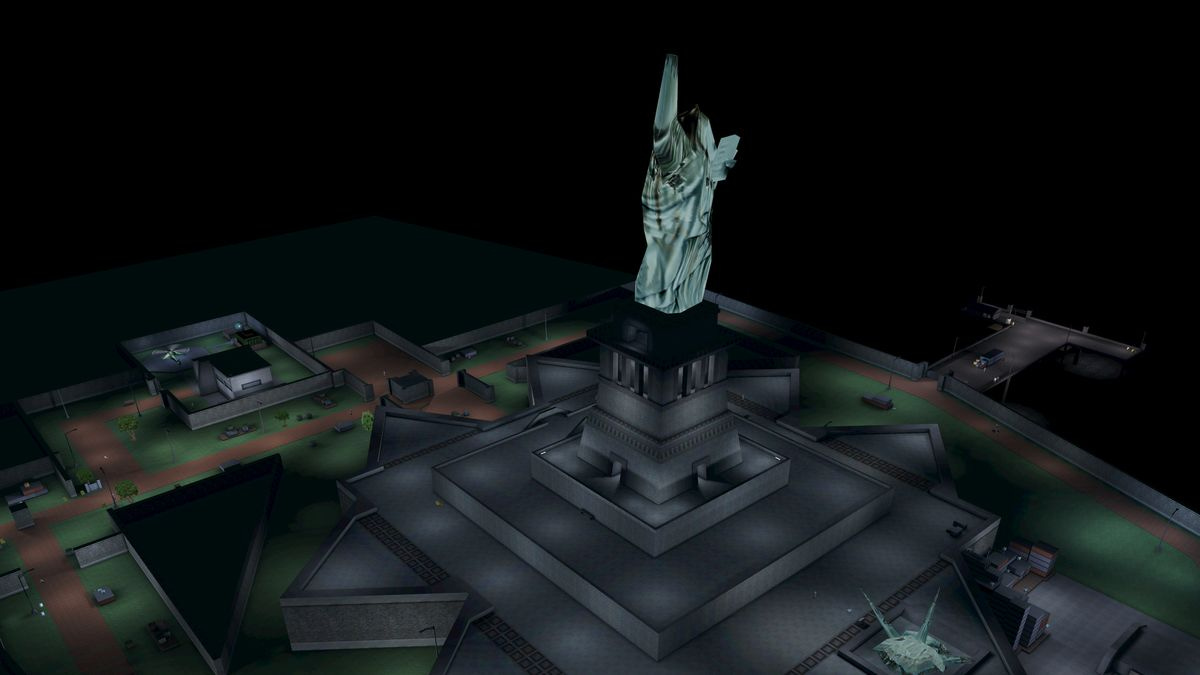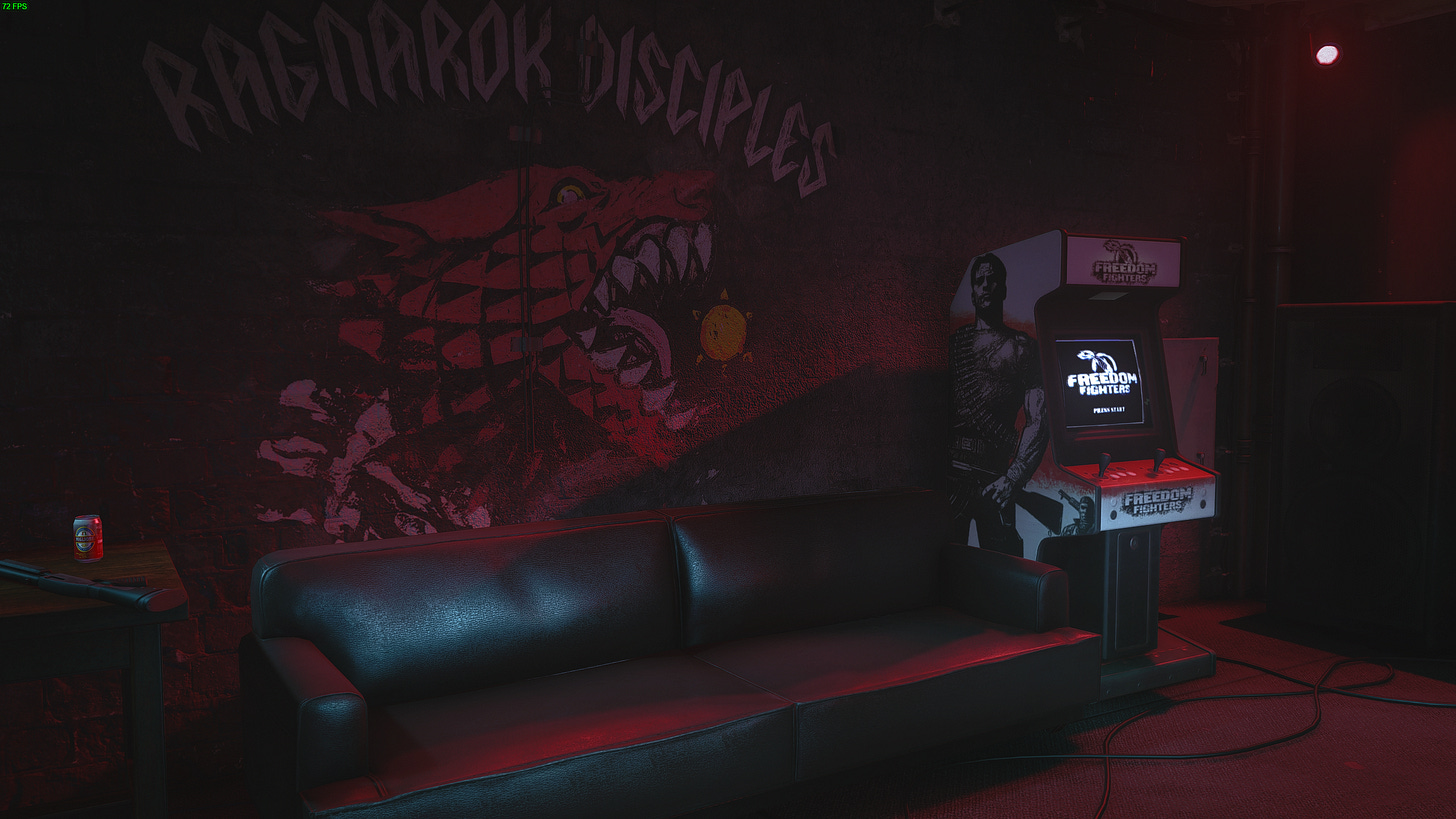This week, as we continue down the Level&Quest Design rabbit-hole, the whole discussion can be summed up by the following:
Grinding in games is simply bad quest design.
How is it that "The Grind" is most often mentioned in game genres such as the MMO & the "live service" type? Why is this behavior so commonplace so as to be common knowledge in "gaming"? Neither grinding, nor farming (its video game language synonym), sounds very appealing in the context of a situation of "play": I'm engaging in this type of repetitive, often low-effort behavior (clearing the same level over and over, gathering an extreme amount of crafting resources, etc.) for an absurdly strict instrumental end (earning a very rare title, obtaining a particularly powerful item, wearing a coveted appearance item, etc.). It seems it's void of any "play" as we've come to define it: as experimentation.
The essential experience of the Grind is a fight against one-self's patience. You are grinding against your own boredom by repeating an uninteresting action to obtain something which you believe will compensate for the trouble you're going through.
There are two "problems" inherent to the behavior, and they have to do with the "methodological" aspect of the Grind:
on the one hand, the belief justifying the behavior is based on an impression or decision taken outside of the process of the grind itself - the motivation to embark upon the grind is not only temporally anterior to the Grind, it is also predicated on an estimation of value operated in the absence of direct contact with the desired object - this is mental cheating similar to the assertion that "I should've done X rather than Y in the past", assertion couched on a present state of mind which is different from the one that actually led to the choice of X rather than Y.
on the other hand, Grinding has somehow earned for itself at least a "neutral" opinion, if not a positive one outright as a kind of aesthetic posture whose purpose is to confer by compensation a desirability "inherent" to the game and in itself - this is some serious mental gymnastics whereby the repetitive, fun-annihilating & experimentation-ending character of the behavior is "inverted" to respectively represent "creativity in repetition", "active pleasure recreation" & "discovery of the depth of mundanity" - a culmination to Orwell's doublethink ("consciously to induce unconsciousness, and then, once again, to become unconscious").
It is here primordial to point out here that the problematic facets of the behavior in no way imply that the behavior should be disallowed or even discouraged: much like the question of how far freedom of expression can be taken, I firmly believe censure is a very poor form of dissuasion or prevention, and generally as long as a behavior is not harmful to others, individuals should take it as far as they believe is necessary. I've done grinding too, and I'm particularly sensitive to the real-life needs it quenches by its inducement of a trance-like forgetfulness.
Nevertheless, I've also discovered just how much more interesting, motivating and pleasing it can be to do better. Very similarly to real life, it's surprisingly easy to do better: just don't settle for less. Aim for those giddy clapping moments; the moments that make you go WOAH; the feelings of having figured out something in a clever way; and, especially, never stop looking for the admiration and emulation that take root in your being after witnessing something or someone awesome.
Excitement, amazement, cleverness, admiration & ambition: these are some of the markers of good quest design.
This is also where we can distinguish level from quest design, even though both of them are strongly interlinked: you can have good level design, but the magic only happens when it's inhabited by good quest design. Let me explain with two examples: the introductory Statue of Liberty level in 2000's Deus Ex, and Hitman 3's (2021) Dartmoor level. Each of the examples should also loop back to our two methodologically problematic facets of bad quest design, and how they avoid/pre-empt them.
In Deus Ex, we need go no further than the very first level, which then came to engender not only the game's subsequent levels, but a whole new genre of videogames (the so-called "immersive sim"). Why? Because the game essentially tasks you with the very general objective of infiltrating the inside of a building, locating the enemy, and optionally freeing an ally; but the level design is done in such a way as to allow this to happen in a handful of manners, all pre-programmed to some degree by the level's openness in presenting different types of gameplay to the player so that they may achieve the objective.
This is what we might call level design: you can sneak in many directions, explore and eventually find hidden ways of infiltration; you can also use a gun to shoot your way around, even though this is initially very difficult (the game has progression mechanics which later make you more proficient at this); if you specialized into some hacking or lock-picking, you can better navigate and gather information; or, if you put points into your muscle augmentations, you'll be able to carry around heavier crates and simply build little towers of small & big crates and quite simply climb your way into the building; and more. This is what most people think of when they summon this label of "the immersive sim", which is used to stigmatise games with similar degrees of freedom in their level design, such as Dishonored, Vampire: Bloodlines or the 2017 reboot of the Prey franchise (shoutout to the excellent OG 2006 game), not to mention the stellar but ill-fated Eidos Montreal sequels to Deus Ex. The label is often stretched out to include others, like Hitman (we'll get to that one!), Bioshock (?!) and the old Thief games, not to mention when people just label anything they consider "good" as "immersive sim) (apparently Red Dead Redemption 2 is also a part of this genre if you read some sites...).
The point is that all of these suggestions are wrong: the label of the "immersive sim" is akin to that of suitcase-words & -expressions which SUGGEST some vague notion without actually giving it any specific nor exhaustive definition.
That's because so-called "immersive sims" are not predicated on their level design, as you might be brought to believe: games as “sims” are immersive not because of their level design, but rather by their quest design and its correspondences with the level they’re paired with.
I could be playing the most complex and elaborate game, that is with the most complex and elaborate level design which is actually coherent & good; but without good quest design, without meaning to guide the interfacing between my person and the object before me, there's an infinity of potential obstacles to my "immersion". What if the music's giving off the wrong vibes compared to the visuals or the fictional setting (synthetic bass for high fantasy?); what if the complexity is so advanced I can't be bothered to learn or understand its mechanics; or what if there's no characters or story to sustain my attention?..
Quest design is the crux of a game's heart, the current animating its skeleton of transistors and programming, much like the blood coursing in our veins, feeding every fiber of our being with life's necessities. Games have their skeleton too, their levels and rendering pipelines, and so they too need the necessities of keeping them alive, here the volition of a player, of a consciousness willing to engage with them in the simple act… of play.
And to loop back to our methodological problems...
it is the immersive quality of any quest design worthy of itself to place you into its own temporality: the estimation of value/desirability of an object of play is done concomitently with its discovery/exploration proposed by the level and its quests. Anyone who has played a game they came to really like will intuitively understand this magic of doing/trying something which, as they do it, becomes more interesting & "valuable". This is the temporal aspect of immersion, the neglecting of time passing "in the real world".
good quest design makes away with the necessity of any exogenous posture whence to surreptitiously confer a meaning & desirability supposedly inherent to the game, simply because good quest design will gracefully and immediately (that is, without any other mediation) motivate & habilitate its objects with thick & consistent meaning. This is the material-ideological aspect of immersion, whereby the ideas or characters or challenge or story of a game will become, for a time at least, more important to the player & exercise more power over them than the notions of "the real world".
Deus Ex’s starting level has the special sauce not because it lets you approach the objective in so many ways, but because of how that level came to be inhabited by an array of meaningful implements which gave mystery, ambiguity, humour and atmosphere to it. In an on-the-nose way, the enemy is labelled as a terrorist group (the "NSF") in the context of a global plague, but information that you can find around the level adds doubts about the involvement of the UNATCO "good guys" & by the time you confront the leader of the NSF, the story has gradually taken a full-blown conspiratorial turn where lines are muddied and this is then built upon in the rest of the game, in how you as a player can interpret your interactions with different characters & factions and your place within their stated as well as unstated motivations. This approach is applied to all information in the game, including its level design: for example, maps have to be found and you have to find landmarks by which to situate yourself on them; you also have to manage overlapping layers of character attributes such as per-limb health pools & nano-augmentation resources whose implications/consequences are structured to make sense only in relation to each other (ex. if you damage the limb which powers your strength, you lose that strength); in a last striking example of the primordial quality of quest design, the game makes you revisit multiple of its levels throughout its playtime, but with a vastly different quest design (no spoilers from me!) whereby the levels take such a completely different twist that it's as if you were playing them for the first time!
I rest my case. I've also blown my word budget again, so I'll have to come back next time to talk about Hitman 3's absolutely incredible quest design and how it places the player in the culmination of the open-world level design it built upon the history of the franchise. I've also managed to excite myself about reinstalling Deus Ex for another playthrough (living up to its reputation of needing a reinstall by mere mention of it).
Medium-term, I also think I'm going to stick to aspects of quest design in different games and the lessons we can draw from their explicitated study; it feels to me that the subject is more important than I initially estimated. If you're interested in the discussion of this series & others down the line, consider subscribing to the newsletter or leaving a comment.





